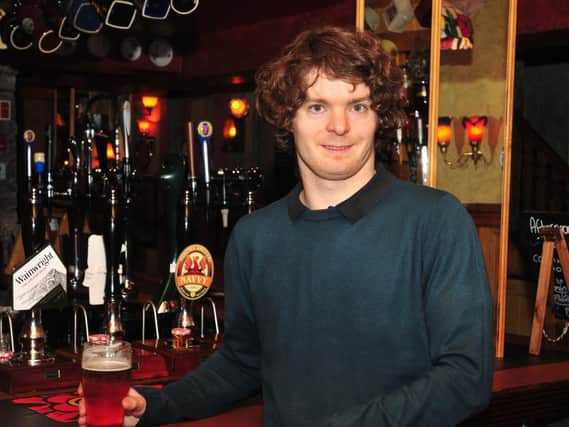Is variety the spice of life or one-track brewing best?


Setting up in such a competitive marketplace as real ale brings numerous challenges for breweries. Not least of these is the taxing question of exactly what they are going to produce.
Some breweries range widely through the increasingly-diverse world of ale, producing everything from luscious dark imperial stouts to palate-cleansing sours to summer-sipping IPAs.
Advertisement
Hide AdAdvertisement
Hide AdAnd others decide they know exactly what they are best at and stick rigidly to the type of beer which initially brought them renown and financial success.
I was reminded of this idea when I came across one of the country’s best examples of a beer specialist.
Verdant in Cornwall is run by a group of craft beer lovers with a deep passion for New England IPAs, the fruity, hoppy, hazy, slightly fungal and chewy bright orange and citrus coloured beers which have taken the modern scene by storm.
The brewery now has a whole range of these things offering variations on the template.
Advertisement
Hide AdAdvertisement
Hide AdThe one I tried, with the fabulous name of Neal Gets Things Done, was a glassful of 6.5 per cent citrus and slightly sour refreshment, with plenty of orange and lemon flavours, a hint of cough sweet and a rather mossy and spongy off-note to give depth and complexity.
Of course some of the European brewing scenes have used this approach as a strength for decades.Belgian brewers tend to change their line-ups very slowly. Rochefort’s list of glorious dark beers remains as it ever was, and Westvleteren of course sticks rigidly to the list topped by the iconic 12.
An interesting variation on this approach of ‘if it ain’t broke don’t fix it’ is employed by one of the doyens of the craft beer scene, Manchester’s Cloudwater.
The brewery doesn’t tend to stray too far from its central offering of astoundingly flavoursome and fruity American-style craft beers, with a range of Double IPAs (DIPAs) and now Triple IPAs (TIPAs) as well.
Advertisement
Hide AdAdvertisement
Hide AdHowever, within that template there is actually infinite room for variation as Cloudwater has no core beers which it makes all the time.
Instead, it continuously varies the hops and other ingredients to make a continuously revolving carousel of ales.
You’ll have a good idea of what to expect when you crack open a Cloudwater can, but it will never be the same beer twice.
Interestingly, this is not just a craft beer idea. Indeed a degree of specialisation can be found in traditional breweries.
Advertisement
Hide AdAdvertisement
Hide AdBlack Sheep and Guinness are just two big names which y stick to what they know best.
Even those with a wider list tend to stick to time-honoured cask beer styles: bitter, gold and IPA, perhaps with a stout or mild thrown in.
Such has been the case here in Wigan. Martland Mill made its name with golden session sippers like Lancashire Loom but now has a red ale, D-Day Dodger, and a porter Arctic Convoy, in its barrels.
Prospect has also developed a range of core brews while also tickling dark ale fans’ palates, especially with its rich citrussy Christmas beer Clementine.
Advertisement
Hide AdAdvertisement
Hide AdWily Fox, meanwhile, has tinkered a bit more through its seasonal one-offs with everything from a Dublin stout to a fusion of German and English beer-making traditions.
Seasonals can be a good way to diversify. Robinsons, for instance, hopes drinkers will be shaken not stirred by its new Blonde, James Blonde, a 3.6 per cent sharp fruity ale inspired by 007.
Robinsons’ delight in puns and associations, with beers produced for the likes of heavy metallers Iron Maiden, has created much variety.
But Liverpool craft concern Mad Hatter take the biscuit for diversity. Their beers include strong ginger ales, a tzatziki sour and a salted caramel quad. Now that’s a varied range!